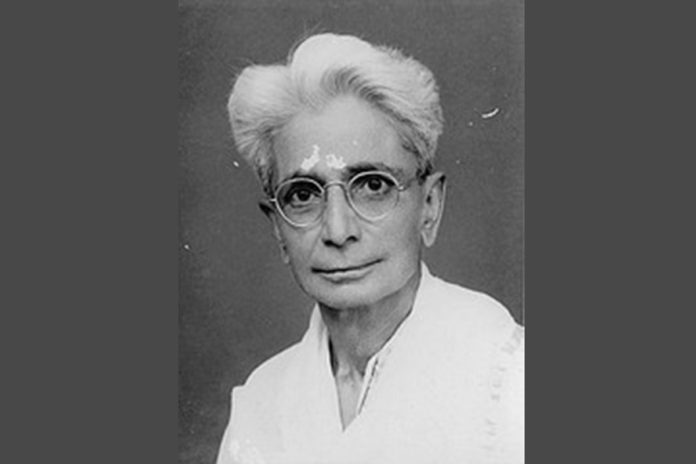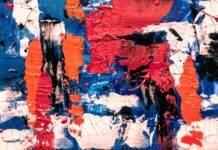Translated from Tamil by N Banumathy
Kittu’s work is over. A great epic which he started to write is complete now. After this, his very few friends observed a big change in him. When they pointed out the same occasionally, Kittu, smiling mildly, would say “My life is a great Shadow Game. The light dimmed; my shadow faded away from vision; aloof and viewing the drama of the world is what I do at present”
Kittu looks like any other common man but for his face and eyes His eyes seem as though presenting Enlightenment. Their pristine vision itself is a great epic. When he talks, the rhythmic resonances subtly clamour sweet music.
The solace in his life is his wife Kunju and his six year old son though they lived in poverty.
He would have lived his life as though it was a sweet dream. But fate intervened and made him the author of an epic. Probably what drove him to write that book could be that his mind wanted to enjoy the short-durational yet permanent blissfulness of “Shrishti, its external explanation and its latent implorations .
The enlightened vision is akin to that of the ultimate liberty enjoyed by birds while traversing the universe and caging of that ultimatum is that Epic. Probably, the Creator’s eternal bliss in “shrishti” is equally cherished by the artists in their creations. Though all creations move fast towards their end, the spell of happiness at the time of creation is embellished in their minds as if without any end .
The poverty of Life stares at him. While writing the book, he could float in the distant space without getting dragged into the worldly matters. But now the worldly life is drawing him towards it. He felt sad sometimes. He wondered “Is it that I saw your Divine Beauty in my dreams? In the Darkness of Awakening has your beauty vanished?” His thoughts weren’t comprehensive like the crippled voice in the dark from “Asareeri” Even then, he would find peace which he had never experienced. He didn’t wish to find the root of this Peace. His peace of mind, like so many other things, must have been based on Maya (illusions); probably, this peace could be due to the very same uncertainty lying underneath in the subconscious; even, this thought was not doubtless.
Kittu’s son was down with fever and suffering for past four to five days. Kittu works in a shop as clerk drawing twenty five rupees a month. He instantly gives that money to his wife. While giving so, he would feel that these currency notes giggle shamelessly. His wife’s eyes would glow and show an enigmatic smile which could not be won even by the Kaladeva (Yama or the Lord of Times/Death) .In contrast he feels sad, very sad. He was baffled as to why he was so different and how to decipher those characteristics. He would console himself as though he was the Writer of his Fate as to this fate. All these things clamoured before writing the Book. Now the writing of the Book is over. He wondered how the fate blindly initiated him for such a great work! However, the Feel of Creator brought that exceptional pure pleasure radiating from his mind’s amused inducements. Probably, that is the reason why the Almighty, without ever bound by fate, continuously creates and derives blissfulness!
Gradually the mortals of the world outside and his hatred towards them receded and vanished. The true happiness was found in the eyes of the child Ramu. They appeared to him as two lamps lit in the path of chaotic mind. The nearer side appeared as an ocean of worries but the farther side, though revealed lesser, blessed him with an assuage of utmost happiness.
Kittu could not bear the sufferings of his child .The kid’s eyes were bright due to excess fever and thus dreadful. Were they like an index finger pointing the feared inevitable? Kittu could not bear the child’s plight.
Kittu and Kunju sat by the child without sleeping. After midnight the boy opened his eyes and murmured “Mom”. Kunju went to bring the medicine and Kittu moved to his chair. She picked up some grapes from the table and fed the boy for changing the bitter taste of medicines and put the boy to sleep. She came back and stood opposite to Kittu but he was engrossed in his purposeless spectation. He was viewing the farthest. The town was sleepy and deadly silent. The moon was stranded in the western sky. He saw the houses, streets and the trees in dim light of the moon. Unmindful of all these things the wheels of nature were revolving in Time. He wondered how this universe sleeps without noticing the pains and pangs of men. He wondered if the pains and pleasures of life only occur in his mind alone. Whatsoever, whom to go for solace, other than the person himself and to seek solace elsewhere might be utter foolishness! He turned his head to see the shadows on the wall moving restlessly. He looked into the face of Kunju in the small dim light without knowing as to what to see.
Kunju was standing with her hands on table. Her mind was almost thoughtless and empty. Her face was like the face of nothingness. She bent down her face and resembled an embodiment of the sorrow of the world. Her tears dropped on the table.
Kittu was helpless. His wife’s boundless sorrow afflicted him.
He chanced to see the grape fruits unbundled in the paper; He took it on hand to fold.
When about to fold he saw something written on the paper and the writing was quite familiar. When the mind becomes restless due to absence of matters to think, even small things assume significance. He could see that that was his handwriting. He kept the fruits on the table and took the piece of paper and sat on the floor. Kunju went near the child as the boy incoherently uttered something in high fever. Kittu had shock of his life time and couldn’t understand anything.
His heart broke into pieces and simultaneously the same happiness which he had at the time of its Creation came to him. The joy brought by Creation is also brought by Liberation. He could guess his boy used the papers of his Great Epic for buying the things he wanted.
Kunju called him and Kittu went to the bedside of the boy. More things stranger than dreams were unfolding before him. He was shackled beyond any comprehension and world looked upside down.
Ramu uttered some words non-cohesively in delirium state and Kittu could hear few words like “Father” and “Top”
Ramu breathed his last in the dawn before the last star in the sky disappeared. Another sparrow had flown out of the cage! Still more stars were seen in the sky.
Kunju’s looks were that of a mother looking for her baby in the empty cradle. She was so stunned and looked alike a dead person. Kittu could not tolerate her plight and embraced her tightly. In that inseparable hug they felt they got formidable bodies.
Kittu felt ridiculed at having lost both his creations at the same time. The pain turned to a silly pleasure on the daunting fact that any “Shrishti” brings with it a joy hiding the truth of its hasty voyage to Death. If that is immortal why the hell the feelings are to be explained?
He was immensely happy about the destruction of his Epic. He sensed the scent left by the withered petal of the flower. Why he united the flower and its fragrance? Was it for the sheer pleasure of the Making?
Now his face is totally calm. The unexpected inward journey brought lustre to his eyes. It looked as though he compulsorily brought out words while talking. He looked compassionately at his wife and it appeared that he lived to have that compassion enshrined forever.
A born blind and a blind by accident are not so different in the superficial appearance and Kittu adopted it in his life.
But, when he hands over the pieces of papers required for folding the Provision items in the Shop, why at all he keeps those torn papers nearer his eyes? Yes, through them and far beyond them he sees the Epic of Life. His eyes resemble the eternal but never seen light. Then he smiles wearily.He knows the blissfulness of “Shrishti” then.
(The above is the translated version of the original Tamil story ” Maaperum Kaaviyam ” (மாபெரும் காவியம்)
About the author:
Mouni was the pen name of Tamil fiction writer S.Mani Iyer (1907–1985). Born at Semmangudi (Tamil Nadu), Mouni had his high school education in Kumbakonam and lived there for fourteen years after marrying. Then he moved to Chidambaram permanently to look after his family properties. He initially had 5 children, 4 boys and a girl. Two of his sons died when they were very young. Another son died in an accident.
Mouni had a Bachelor’s degree in Mathematics, but he did not take up any job. He was very fond of European classical music and he also had very strong exposure to Western literature, and showed deep interest in Indian philosophy. Mouni wrote 24 short stories from around 1934, some of which have been translated into English. Mouni’s stories are based on the uncertainties of human life, relationships and their manifestations. His pen name and the titles of his stories were given to him by his mentor. His stories came out in Tamil magazines such as Theni. He was fondly called by Pudhumaipithan ( contemporary writer of his age) as ” sirukathaiyin thirumoolar“. Mouni died in Chidambaram on June 6, 1985.
About the translator:
N Banumathy was born in Pudukkottai (Tamil Nadu) and is a post-graduate in Commerce. She took up banking as a career and took voluntary retirement in 2015. She is an avid reader of literary works and is also an author of short stories and poems, which have appeared in many veracular magazines. She is also an avid translator.



















